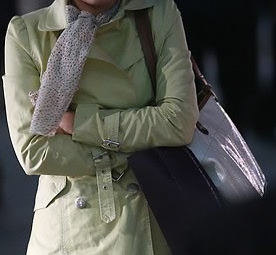- California Assembly OKs highest minimum wage in nation
- S. Korea unveils first graphic cigarette warnings
- US joins with South Korea, Japan in bid to deter North Korea
- LPGA golfer Chun In-gee finally back in action
- S. Korea won’t be top seed in final World Cup qualification round
- US men’s soccer misses 2nd straight Olympics
- US back on track in qualifying with 4-0 win over Guatemala
- High-intensity workout injuries spawn cottage industry
- CDC expands range of Zika mosquitoes into parts of Northeast
- Who knew? ‘The Walking Dead’ is helping families connect
Korea ranks 111th out of 136 in gender equality

Gender inequality in Korea is similar to that suffered by women in Middle Eastern countries such as the United Arab Emirates (109th), Bahrain (112th), and Qatar (115th).
By Bahk Eun-ji
The World Economic Forum disclosed Friday the Global Gender Gap Report, which shows that Korea is one of the worst places for women to live in the world.
It is ranked 111th among 136 countries surveyed, and dropped down three notches from last year, despite the election of the nation’s first female president in December 2012. In fact, the country’s ranking has dropped for four straight years from 104th in 2010 to 107th in 2011 and 108th last year.
This means that gender inequality in Korea is similar to that suffered by women in Middle Eastern countries such as the United Arab Emirates (109th), Bahrain (112th), and Qatar (115th). One working woman in Seoul questioned about the report’s findings responded, “This is absolutely atrocious.”
The report is based on four categories of women’s economic participation and opportunities available to them; educational attainment; health; and survival and political empowerment. These criteria assess the overall quality of life for women compared to men in each nation.
The rankings are measured on a scale of zero to one with one indicating the existence of complete gender equality.
The overall score for Korea is 0.635, while Iceland that topped the list with 0.873 with runner-up Finland at 0.842.
Yemen is on the bottom with Pakistan, Chad and Syria marginally above it.
The data shows that women in Korea have been provided with good educational opportunities, with a score in this category of 0.959 and health with 0.973, but the political participation and distribution was 0.504 and 0.105, respectively.
Political empowerment rankings are determined by the proportion of women in the National Assembly.
Among Asian countries, the Philippines jumped three places to fifth and China remained at the same slot at 69th, and Japan ranked 105th, four places down from last year.
“The rankings are designed to create greater awareness among a global audience of the challenges posed by gender gaps and the opportunities created by reducing them,” the report said. The report also noted that the index continues to track the strong correlation between a country’s gender gap and its national competitiveness. “Because women account for one-half of a country’s potential talent base, a nation’s competitiveness in the long term depends significantly on whether and how it educates and utilizes its women,” it said.









![일본 사도광산 [서경덕 교수 제공. 재판매 및 DB 금지]](http://www.koreatimesus.com/wp-content/uploads/2024/07/PYH2024072610800050400_P4-copy-120x134.jpg)


